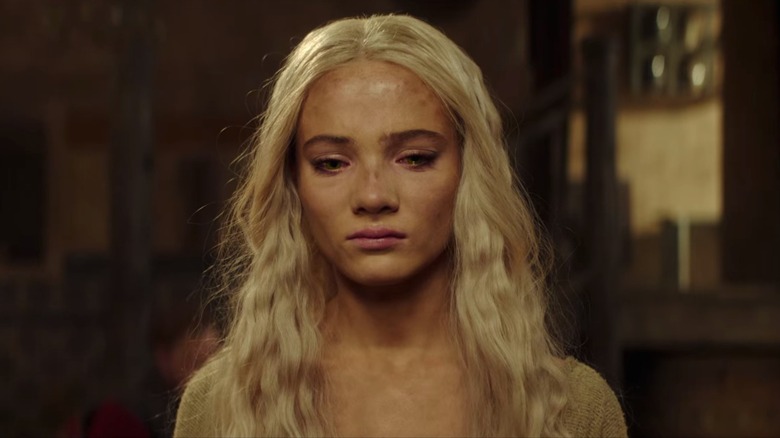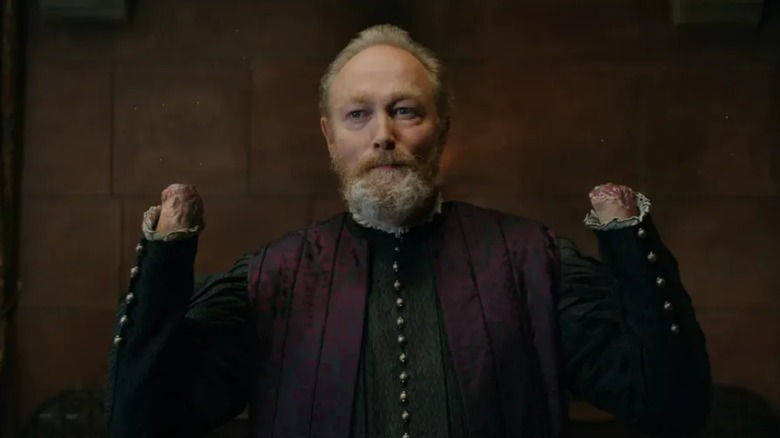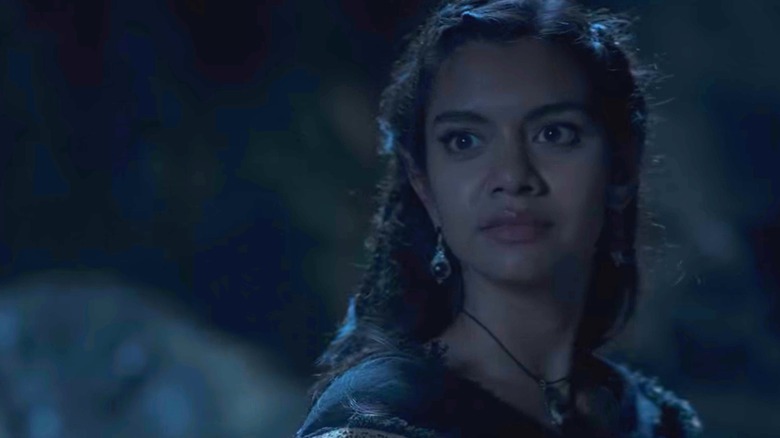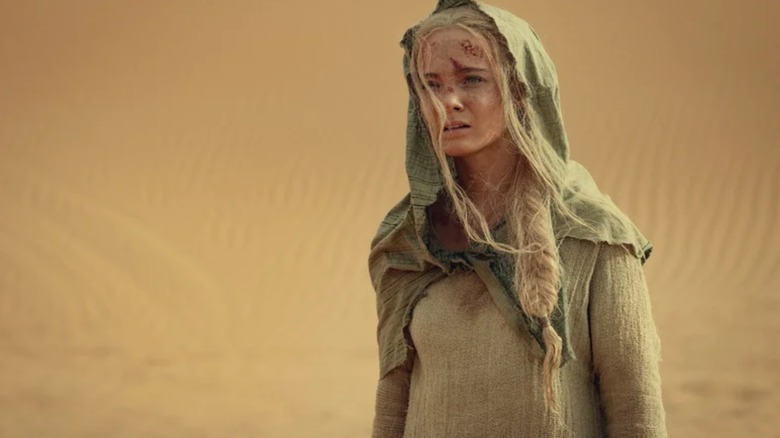What's Up With Falka And Her Rebellion In The Witcher Season 3?
This post contains spoilers for "The Witcher" season 3 volume 2.
If you're well-versed in the lore of Andrzej Sapkowski's "The Witcher" book series, the final moment of Netflix's season 3 finale might have left you saying some variation of, "Aw, hell yeah!" If you haven't read the books, Ciri's last-minute name-drop perhaps feels a lot less significant, but it's obvious to even the most casual viewers that it's a major moment. After all, it's not Geralt that gets the last word this season, but Ciri, as she introduces herself to the gang of fellow survivors called The Rats after assisting them in the slaughter of their captors. "Call me Falka," she says, just before the credits roll.
This isn't the first time we've heard the name Falka: The character was first mentioned back in season 2, but audiences met her in the penultimate episode of the new season, during Ciri's vision-filled quest through the Korath Desert. So what exactly should we know about Falka, the princess from the past whose namesake Ciri adopts after spilling buckets of non-monster blood alongside The Rats?
Two versions of history
Before Ciri's desert pilgrimage, viewers had already heard about Falka via the shady wizard Stregobor (Lars Mikkelsen). When Stegobor taught a class of mages in season 2, he referenced the story of Falka as a fear-mongering cautionary tale. According to the villainous sorcerer, Falka was a part-elven princess (though he actually calls her "a power-hungry mutt of a girl," because he's the worst) who started a rebellion after the Redanian King Vridank rejected her mother. Stregobor said Falka called for the death of kings and killed nobles, priests, and civilians alike. In a propagandistic display, he told his pupils that Falka burned cities to the ground, and that quarter-elf Yennefer could repeat her mistakes. He also claimed that he lost his hands trying to stop her from destroying the stronghold Mirthe and the mages within it.
Anti-elf magician Stregobor isn't exactly the most trustworthy guy in "The Witcher" universe, but historian Istredd (Royce Pierreson) tends to be a better source of intel when it comes to the backstories of the realm. He pushed back against Stregobor's characterization of Falka at the time, saying "Falka was a girl forgotten by her family. She was trying to rightly recover her throne." He doesn't give much more explanation than that, though, so when viewers see Ciri encounter a vision of Falka in the desert, she still seems like a not-entirely-trustworthy figure.
A princess reclaims her story
In Sapkowski's books, Falka was the daughter of King Vridank's first wife, though she and her mother were kicked out of the kingdom when Falka was just a baby after the king met someone new. Her rebellion was certainly bloody, but it at the very least had a sort of Daenerys Targaryen-like motivation, as Falka thought the throne was rightfully hers to reclaim. Ciri, too, seems to approach Falka's spirit (Hiftu Quasem) with preconceived notions, having heard that she was a "cursed elven monster" who ended up burned at the stake. Falka tells her she "rallied the common folk" and took back her power by sending a message in blood and fire, the only things that would get through to the royals.
Falka is clearly a complex figure. She explains to Ciri that the world made an example of her and she didn't mind playing the villain, and she also says she did what she did to gain "the freedom to feel [her] rage" and stop shaming herself. But she also seems to stoke Ciri's interest in forbidden fire magic, telling her that if she wants to change the system, she'll have to burn the whole thing down. Later, she shows Ciri a vision of what her future could look like if she walks in Falka's footsteps, killing anyone who gets in her way in order to reclaim her own power. Ciri ultimately relinquishes her fire magic and denies Falka's vision, but in the final moments of the season, she seems to embrace her ability to spill blood.
Ciri has a new name now
After being kidnapped, Ciri slaughters her captors alongside The Rats, a ragtag group of teens who seem to travel together and do whatever they need to in order to survive. "They tell you it's going to feel bad, taking a life," one of them tells Ciri, "but it doesn't." The princess looks at the bodies with tears in her eyes, and it's clear that she's processing the moment, but then she becomes more resolved. She asks the others to call her Falka, and it seems to be a bittersweet admittance that she has more in common with the historical princess than she was willing to admit. The truth about Falka likely lies somewhere between Stregobor's nasty retelling and Falka's own positive PR spin, but after a moment of rage and vengeance, Ciri can't help but think of her.
Does this mean that Ciri is going to make the rivers run red with blood like the stories about Falka say she did? Maybe not, but it does indicate a new, cynical era for her character, one that comes to fruition in the next Witcher novel, "Baptism of Fire." Season 4 of the Netflix series seems poised to adapt that book next, which means Falka — AKA the lost Princess Ciri, taking on the name of a powerful, misunderstood, violent woman — is just getting started.
"The Witcher" season 3 is now on Netflix in its entirety.



